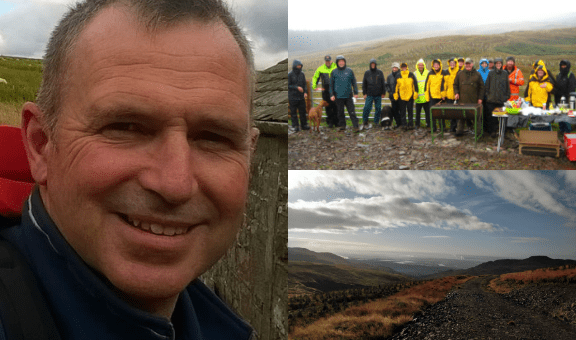Growing Our People
An interview with Robert Herbert, District Manager in South West Scotland.
“We have 27 staff working out of my District office, their health and safety is my key priority as is their development and job satisfaction.”
What do you do? Tell us about your typical day?
My key responsibility is to ensure the team are safe and co-ordinated and able to achieve our targets and that our clients’ objectives are met. The District manages around 40,000ha of Forest from which, on average, 1,000ha is felled and restocked each year. We are also involved in new woodland creation and at present have circa 1,000ha of this in the pipeline. Seeking out new opportunities for forest management and woodland creation is a key part of the role as is looking after our existing clients.
There isn’t really a typical day so to speak. We still have seasonality to our work, although this is noticeably changing, in part due to volume of work and in part due to the climate. The forest year used to start in September, when we would usually be preparing ground for planting or re planting. We would then start planting in December through to May, then we would be looking at maintenance of crops, weeding, pruning, protection etc. These days the work streams seem to overlap and merge and all the time the planning permissions required to allow it all to happen need to be gained or refreshed, and the demands to evidence compliance are increasingly burdensome. My work most days depends on where we are in the work programme and what support or resource is needed to achieve the above.
We have 27 staff working out of my District office, their health and safety is my key priority as is their development and job satisfaction.
How did you get into forestry?
I grew up in Argyll surrounded by the forests of Knapdale and Loch Awe. I liked being in the woods and from that my interest in growing timber developed.
What do you like and not like about working in this industry?
I like growing trees, particularly for timber. If you do that all the other benefits of woodland follow. I don’t like the fact that that very basic point gets missed a lot.
Why did you decide to work for Tilhill Forestry?
To be honest they were the first to offer me a job.
What do you like most about this company?
The people and the fact that as well as making a profit they are looking to make a difference, always willing to be the first to try something.
How do you feel Tilhill Forestry contributes to its employees’ professional development?
The company is all about its people and it’s fully aware of that. There is a wide breadth of experience within the company and this is willingly shared. We encourage membership of the ICF and RFS and attendance at events that will help develop staff. Seeing staff develop is now the most satisfying part of my job.
What sorts of changes are occurring in your occupation?
Technology is moving forward at a great pace and we need to be taking advantage of modern mapping and GIS and data capture and transfer systems to help with our planning and execution. Basic silviculture remains the same but we have learnt so much from establishing and restructuring the plantations of the late 1960s and early 1970s that we can apply to our replanting and new planting.
How does a person progress in your field?
Look, listen and learn.
What is your advice to anyone wishing to pursue forestry as a career?
I think getting some practical experience is still the best way to go about starting off in the industry. Get out there and plant some trees.



